A number of leaders across various sectors within the NI agri food industry have outlined their preference that the UK would remain in the EU single market and customs union post Brexit.
Taking part in a panel discussion at a Brexit-related event held at AFBI Hillsborough on Monday evening, Dr Mike Johnston from Dairy UK, Conall Donnelly from the NI Meat Exporters Association, and Deidre McIvor from the Pork and Bacon Forum, all highlighted the importance for business that it continues to have access to the EU market.
The potential damage
Their collective position is that Brexit could potentially be very damaging for NI agri food.
“It is difficult to quantify any opportunities out there from Brexit,” argued Conall Donnelly.
Also sharing the panel was Ulster Farmers’ Union President Barclay Bell.
While he didn’t go as far as the others, he did repeat the current position of the four UK farm unions – that the UK should remain in the customs union for a transitional period once it leaves the EU.
In simple terms, staying in the EU customs union would potentially allow trade to continue to flow unheeded across EU borders, including across Ireland.
The downside
The downside for the UK is that it couldn’t then do separate trade deals with non-EU countries.
And if the UK was to remain part of the EU single market, this comes with the added requirement of the free movement of people across borders.
However, that access to EU labour is important in local agri-food processing.
“We are concerned about access to labour. Brexit is already starting to have an impact,” maintained Deirdre McIvor.
Paid membership
While the local food industry might want to remain in the EU single market post-Brexit, the UK government would have to pay for that membership, something untenable for hard-line Brexit supporters.
“We would clearly like to have continued membership of the single market. But the mood music isn’t optimistic at present,” noted Mike Johnston.
AFBI Brexit scenarios to inform Westminster debate
AFBI report
The report produced by agricultural economists based at the Agri-Food and Biosciences Institute (AFBI), on the potential impact of three different post-Brexit trade agreements on UK agriculture, has been sent to government officials at Westminster.
Speaking at the discussion forum held at AFBI Hillsborough this week, AFBI director Dr Elizabeth Magowan said that the AFBI analysis could help inform the debate around Brexit. AFBI economists are to travel to Westminster later this month to formally present their findings.
The report itself looked at the impact of three trade scenarios:
A comprehensive free trade agreement with the EU.The UK operating under World Trade Organisation (WTO) rules.Unilateral trade liberalisation, where tariffs on imports to the UK are removed.Assumption may be incorrect
While the work itself is well regarded, and a useful indicator of the impact of various trading relationships post-Brexit, it does make a number of assumptions that might turn out to be incorrect. For example, in the first scenario there is no account taken of non-tariff barriers.
These technical issues, perhaps related to food hygiene or animal traceability, can add significant costs.
Second scenario
In the second scenario it is assumed that the UK will continue to import sheep meat from New Zealand at current levels, and free of tariff, effectively replicating current arrangements with the EU. Given that the UK sheep industry is highly dependent on EU exports, if these exports face a high tariff barrier, while at the same time New Zealand imports continue tariff free, the negative impact on the sheep sector is significant.
In the third scenario, it is assumed that the UK would accept imports tariff free, but would have to pay significant WTO tariffs on exports. However, it would be unlikely that the UK government would negotiate tariff-free deals with other countries without looking for similar concessions in the other direction.
But either way, cheap food imports would be devastating, particularly for the beef and sheep sector.
Outcome
Assuming that the UK is outside of the EU single market and customs union post Brexit, industry panellists taking part in the discussion agreed that a comprehensive, free trade agreement with the EU is the best outcome.
The second scenario, where the UK falls back to WTO rules, with tariffs on imports and exports, would have the effect of driving up prices across a number of commodities, which could benefit farmers in the short term.
“It would be a short-lived party that could end in tears” suggested UFU president Barclay Bell.
He also described the third scenario (liberal trade) an “absolute no-go” for farmers.
In terms of other work required, suggestions included an assessment of the capital expenditure that would be required in processing if market access is restricted post-Brexit.
Possible issues to be assessed include costs of upgrading meat plants to allow all NI sheep to be processed here, and also the costs involved in switching over from milk powder production (UK market over-supplied) to making more cheese (UK market under-supplied).
Other areas for further study include the issue of environmental controls – with the UK below self-sufficiency in the likes of pigs and poultry, there is potential for NI to supply more into the UK market, but the industry is currently constrained by various rules, particularly around ammonia emissions.
Finally, British consumers want British food, but how much are they willing to pay over and above an imported product?
Read more
UK seeks 'implementation period' and will pay – May
Brexit breakthrough needed, and soon
A number of leaders across various sectors within the NI agri food industry have outlined their preference that the UK would remain in the EU single market and customs union post Brexit.
Taking part in a panel discussion at a Brexit-related event held at AFBI Hillsborough on Monday evening, Dr Mike Johnston from Dairy UK, Conall Donnelly from the NI Meat Exporters Association, and Deidre McIvor from the Pork and Bacon Forum, all highlighted the importance for business that it continues to have access to the EU market.
The potential damage
Their collective position is that Brexit could potentially be very damaging for NI agri food.
“It is difficult to quantify any opportunities out there from Brexit,” argued Conall Donnelly.
Also sharing the panel was Ulster Farmers’ Union President Barclay Bell.
While he didn’t go as far as the others, he did repeat the current position of the four UK farm unions – that the UK should remain in the customs union for a transitional period once it leaves the EU.
In simple terms, staying in the EU customs union would potentially allow trade to continue to flow unheeded across EU borders, including across Ireland.
The downside
The downside for the UK is that it couldn’t then do separate trade deals with non-EU countries.
And if the UK was to remain part of the EU single market, this comes with the added requirement of the free movement of people across borders.
However, that access to EU labour is important in local agri-food processing.
“We are concerned about access to labour. Brexit is already starting to have an impact,” maintained Deirdre McIvor.
Paid membership
While the local food industry might want to remain in the EU single market post-Brexit, the UK government would have to pay for that membership, something untenable for hard-line Brexit supporters.
“We would clearly like to have continued membership of the single market. But the mood music isn’t optimistic at present,” noted Mike Johnston.
AFBI Brexit scenarios to inform Westminster debate
AFBI report
The report produced by agricultural economists based at the Agri-Food and Biosciences Institute (AFBI), on the potential impact of three different post-Brexit trade agreements on UK agriculture, has been sent to government officials at Westminster.
Speaking at the discussion forum held at AFBI Hillsborough this week, AFBI director Dr Elizabeth Magowan said that the AFBI analysis could help inform the debate around Brexit. AFBI economists are to travel to Westminster later this month to formally present their findings.
The report itself looked at the impact of three trade scenarios:
A comprehensive free trade agreement with the EU.The UK operating under World Trade Organisation (WTO) rules.Unilateral trade liberalisation, where tariffs on imports to the UK are removed.Assumption may be incorrect
While the work itself is well regarded, and a useful indicator of the impact of various trading relationships post-Brexit, it does make a number of assumptions that might turn out to be incorrect. For example, in the first scenario there is no account taken of non-tariff barriers.
These technical issues, perhaps related to food hygiene or animal traceability, can add significant costs.
Second scenario
In the second scenario it is assumed that the UK will continue to import sheep meat from New Zealand at current levels, and free of tariff, effectively replicating current arrangements with the EU. Given that the UK sheep industry is highly dependent on EU exports, if these exports face a high tariff barrier, while at the same time New Zealand imports continue tariff free, the negative impact on the sheep sector is significant.
In the third scenario, it is assumed that the UK would accept imports tariff free, but would have to pay significant WTO tariffs on exports. However, it would be unlikely that the UK government would negotiate tariff-free deals with other countries without looking for similar concessions in the other direction.
But either way, cheap food imports would be devastating, particularly for the beef and sheep sector.
Outcome
Assuming that the UK is outside of the EU single market and customs union post Brexit, industry panellists taking part in the discussion agreed that a comprehensive, free trade agreement with the EU is the best outcome.
The second scenario, where the UK falls back to WTO rules, with tariffs on imports and exports, would have the effect of driving up prices across a number of commodities, which could benefit farmers in the short term.
“It would be a short-lived party that could end in tears” suggested UFU president Barclay Bell.
He also described the third scenario (liberal trade) an “absolute no-go” for farmers.
In terms of other work required, suggestions included an assessment of the capital expenditure that would be required in processing if market access is restricted post-Brexit.
Possible issues to be assessed include costs of upgrading meat plants to allow all NI sheep to be processed here, and also the costs involved in switching over from milk powder production (UK market over-supplied) to making more cheese (UK market under-supplied).
Other areas for further study include the issue of environmental controls – with the UK below self-sufficiency in the likes of pigs and poultry, there is potential for NI to supply more into the UK market, but the industry is currently constrained by various rules, particularly around ammonia emissions.
Finally, British consumers want British food, but how much are they willing to pay over and above an imported product?
Read more
UK seeks 'implementation period' and will pay – May
Brexit breakthrough needed, and soon




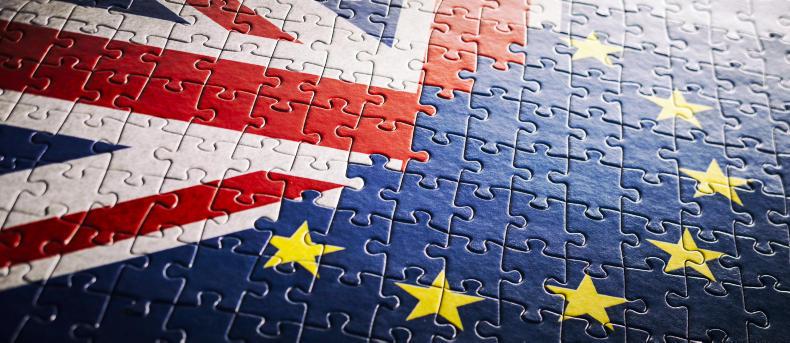
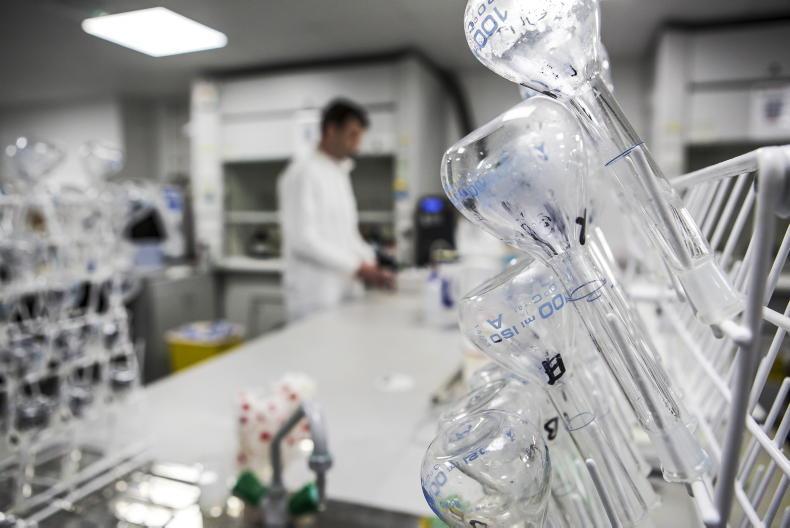
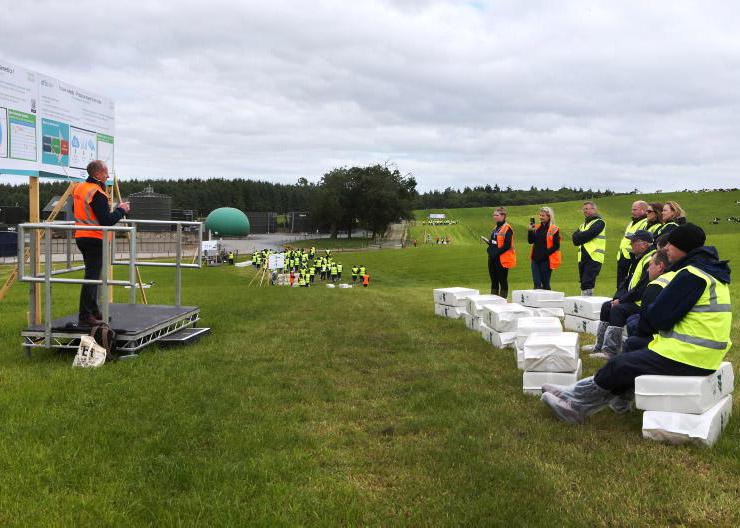
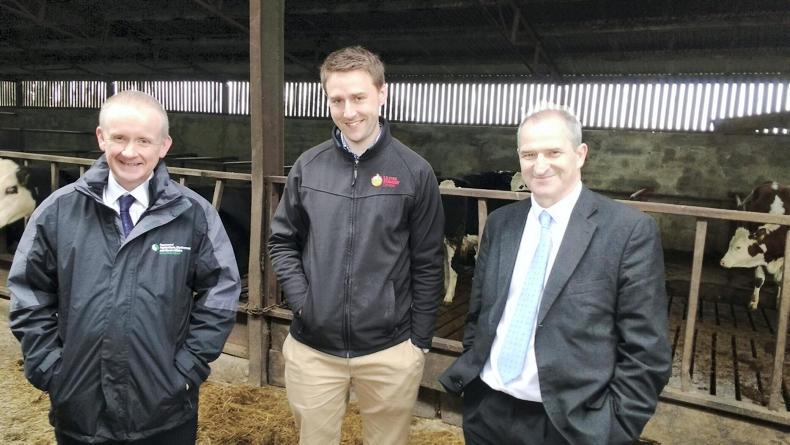
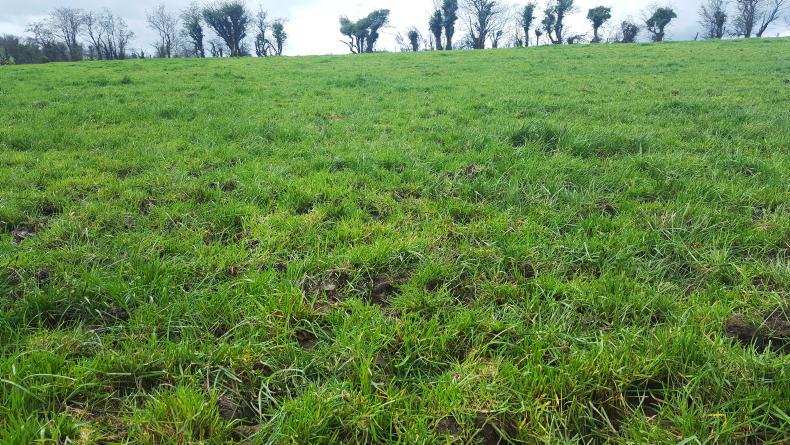
SHARING OPTIONS